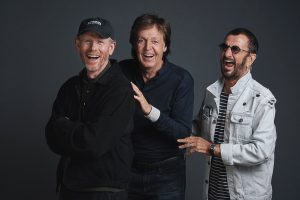Paul McCartney has filed suit in New York against Sony/ATV and is looking to get a declaratory judgment that states he will soon regain his copyright ownership share to a treasured catalog of songs created as a member of The Beatles.
In what could become one of the most important legal battles in the music industry this decade, the iconic songwriter is looking to leverage the termination provisions of the Copyright Act.
In 1976, Congress increased the period that works are under copyright protection, and, in recognition of authors who had signed over their rights to publishers and studios without much bargaining power, allowed such authors 35 years hence to reclaim rights in the latter stages of a copyright term. Artists such as Bob Dylan, Tom Petty and Prince have used the mere threat of termination to negotiate new deals and better compensation arrangements.
According to McCartney’s complaint, he transferred rights to songs co-authored by him and John Lennon between 1962 and 1971 to various music publishers.
It’s well known that in the 1980s, after getting advice from McCartney himself that the big money in music was tied to rights in song compositions, Michael Jackson bought songs including “Yesterday,” “Hey Jude” and “Let It Be.” Jackson then entered a joint venture with Sony/ATV, and last year, his estate sold the late pop singer’s remaining interest to Sony.
The lawsuit notes that McCartney has been serving and recording termination notices for nearly a decade. Represented by attorneys at Morrison & Foerster, he now expects to recover copyright interests as soon as Oct. 5, 2018. “For years following service of the first Termination Notices, Defendants gave no indication to Paul McCartney that they contested the efficacy of Paul McCartney’s Termination Notices,” states the complaint. “Defendants’ affiliates did, however, oppose at least one other artist’s terminations of transfers under the terms of the 1976 Copyright Act.”
That refers to Duran Duran’s own attempt to regain rights under the termination protocol outlined by U.S. copyright law. In December, Sony scored a shocking win when an English court ruled that American termination law took a backseat to an interpretation of contracts under English law. The justices determined that Duran Duran’s contractual promise to not transfer its interest in copyrights foreclosed its ability to terminate a grant of rights as a transfer of reversionary interest from the song publisher to themselves.
Apparently, that has given Sony hopes of pulling off the same maneuver with respect to Beatles songs.
Sony, states McCartney’s complaint, has refused to provide confirmation of termination and has “thus attempted to reserve Defendants’ right to assert that once Paul McCartney’s terminations go into effect, Paul McCartney will have breached his contractual obligations to Defendants. Rather than provide clear assurances to Paul McCartney that Defendants will not challenge his exercise of his termination rights, Defendants are clearly reserving their rights pending the final outcome of the Duran Duran litigation in the U.K.”
By filing this suit now, McCartney clearly is looking to have an American court rather than a U.K. one rule in the dispute. By doing so, the complaint hints that he will soon be bringing arguments that in the U.S., the statutory termination right supersedes any contractual right. Whether or not an English court recognizes such a decision will be something for down the road.
In the meantime, conversations between the parties, attached as an exhibit to the lawsuit, reveal that Sony has made arrangements with respect to John Lennon’s share and will retain its worldwide rights in his share of the compositions for the life of the copyright. Sony chairman Martin Bandier has been conversing directly on this issue, and the defendant has retained attorney Donald Zakarin for its legal defense. When the topic of Duran Duran was first addressed in December, it was interpreted as a “threat.” Zakarin later wrote the other side that it had no wish to engage in litigation with McCartney and hoped to reach an agreement with him that would be mutually beneficial. But money can’t buy love. The two sides haven’t been able to come to a deal, and now the dispute has been put before a judge.
In response to the lawsuit, Sony issued this statement: “Sony/ATV has the highest respect for Sir Paul McCartney with whom we have enjoyed a long and mutually rewarding relationship with respect to the treasured Lennon & McCartney song catalog. We have collaborated closely with both Sir Paul and the late John Lennon’s Estate for decades to protect, preserve and promote the catalog’s long-term value. We are disappointed that they have filed this lawsuit which we believe is both unnecessary and premature.”
By Eriq Gardner
https://www.yahoo.com/music/paul-mccartney-sues-sony-regain-rights-beatles-songs-222317889.html


